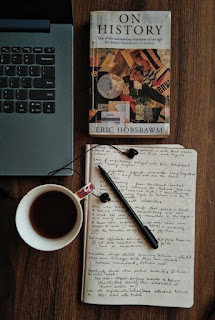Featured
- Get link
- X
- Other Apps
How To Create an Independent Study
Most college majors have some unique form of independent study, internship, or research opportunity. In fact, most universities have opportunities that are specific to that school, because of location, certain programs, etc. A good example of this is my own university’s archival internship. The University of the Pacific is home to most of naturalist John Muir’s personal papers. Our archival internship focuses on studying these papers, which is something that students at other universities wouldn’t be able to do. If you’re thinking about doing an independent study, ask yourself: What is unique about my school? Is there a unique regional opportunity I can take advantage of? Is there a certain professor whose research interests are similar to my own that I’d like to work with?
The first and most important step in creating an independent study is to find a topic that interests you. This should be a topic that doesn’t already exist as a course at your school (the point of an independent study is to study a unique/niche topic that you wouldn’t be able to learn about otherwise). Once you’ve figured out a topic that suits your interests and your major (and doesn’t already exist as a class!), you can move on to the second step.
The next thing you’ll want to do is find a professor who is willing to oversee your independent study. Generally, this will be someone whose research is in that subject and who you are already acquainted with. If you are unsure how to go about finding someone, then reach out to your adviser and ask them who they think would be a good fit.
Important tip: make sure that the professor you want to oversee your study is one that you’re already acquainted with. Imagine the awkwardness of asking a professor who doesn’t know you if they would be willing to put in extra hours to oversee your independent study! Not exactly a plan for success.
Once you have your topic picked out and have found a professor to oversee your study, the next thing to do is to decide on a course of study. Because this is your independent study, know that you have most of the say in what you’ll be learning. Collaborate with your overseeing professor to develop a syllabus, or another type of lesson plan. Independent studies are such a special opportunity; it’s so important to make the most of it. and ask them if there is any paperwork that should be filled out, and if you’ll be needing their signature.
I’m so glad that you’re taking this step for yourself and your education! I hope it works out wonderfully. Let me know in the comments what you’re planning on studying!
- Get link
- X
- Other Apps
Popular Posts
7 Things to Keep in Mind When Registering for Classes
- Get link
- X
- Other Apps



Comments
Post a Comment